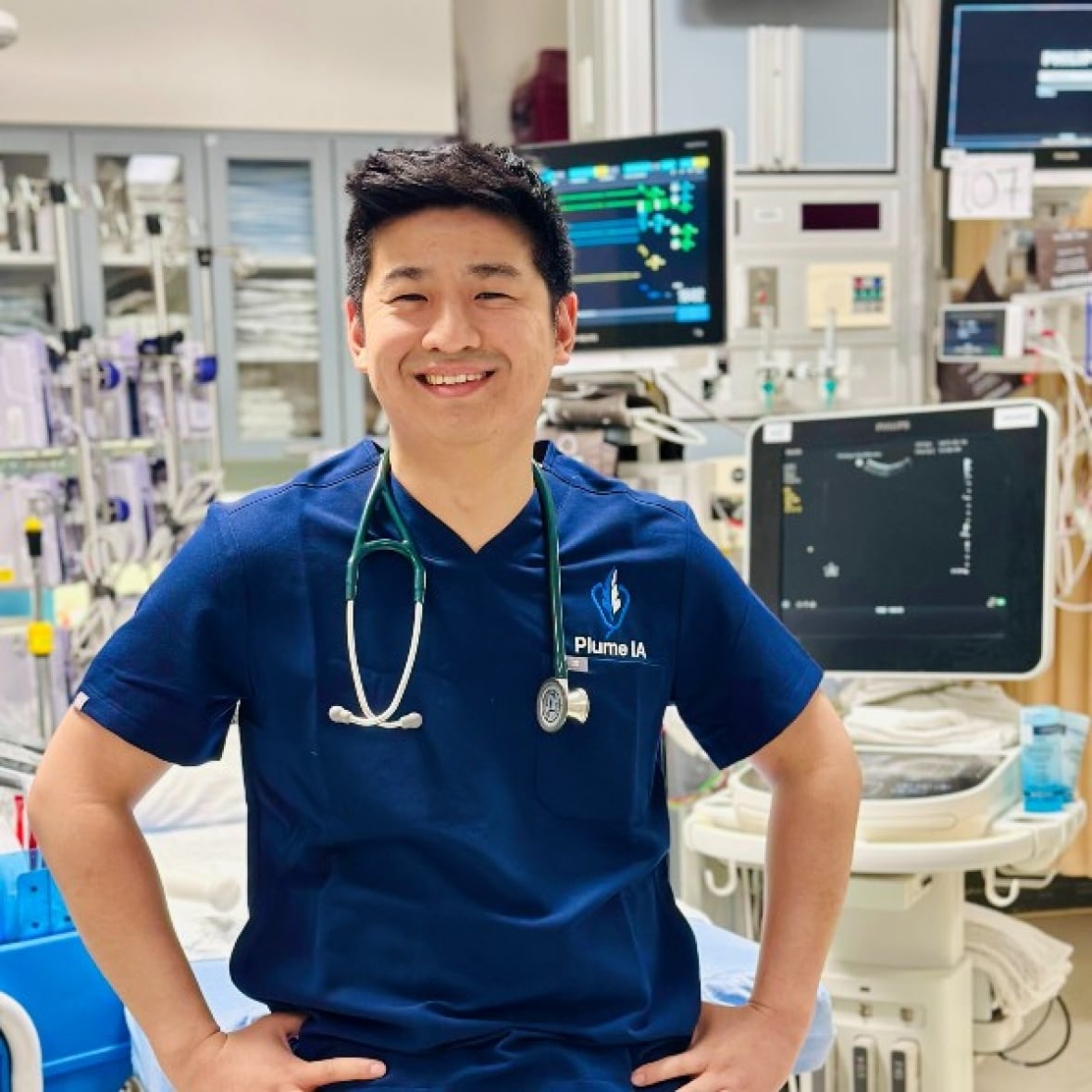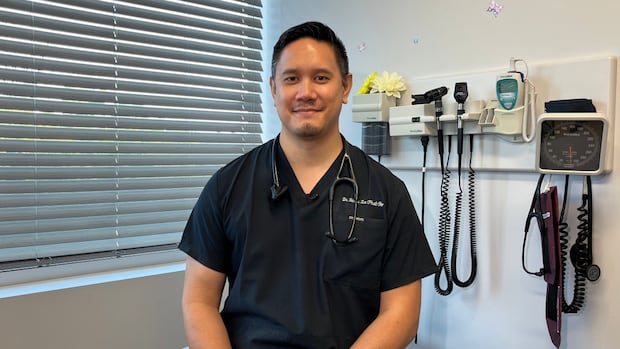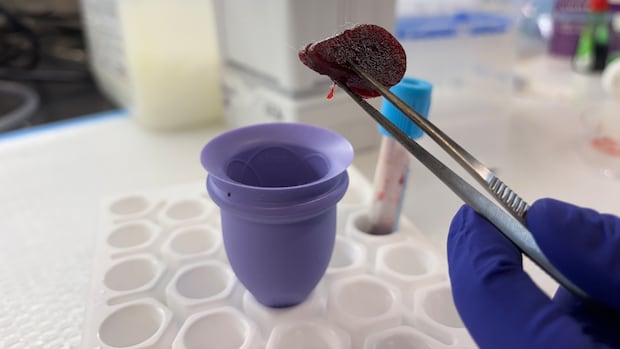Frustrated by overwhelming paperwork that eats into their time with patients, some doctors in Quebec have been turning to artificial intelligence tools to streamline the transcription of their medical notes during consultations.
Now, Santé Québec, the Crown corporation that oversees the province’s health-care network, is planning to launch a pilot project to look into these technologies with the goal of expanding their use in the health-care system.
Dr. Felix Lê-Phat-Hô, a family physician based in Montreal, has been using one of the tools for a year and says it’s reduced his mental load and improved his quality of service.
“It has a huge impact in my clinical practice,” he said of the tool Plume AI.
Lê-Phat-Hô says the tool saves him from doing two to three hours of paperwork daily, allowing him to see up to three more patients a day.
Right now, only applications that have obtained official certification from Santé Québec, guaranteeing data protection, can be used.
Plume AI, which was created by a group of Quebec doctors, is one of these approved platforms. Its co-founder, emergency room physician Dr. James Tu, says 10 per cent of doctors in Quebec already use his application — about 2,000 doctors.
For Lê-Phat-Hô, the benefits speak for themselves. “You get to focus your attention solely on the patient, and the patients really appreciate it because they can feel that they have their doctor’s full attention.”
“So it’s really like a win-win situation for both the patient and me.”
The Quebec government says it’s launching a pilot project involving artificial intelligence transcription tools for health-care professionals, with an increasing number saying they cut down the time they spend filling paperwork.
How does it work?
Plume AI is an application that doctors can download on their phones or their computers.
At the beginning of the consultation, they explain to the patient what the application does and ask for consent before recording the exchange.
If the patient accepts, the doctor starts the recording, and the consultation goes on like it normally would: the patient explains their problem, the doctor asks questions, talks about diagnosis and the treatment plan.
“It doesn’t matter what the flow of the discussion was, what the interview was, what the language was, what the patient’s accent was,” said Tu. “Thanks to artificial intelligence, it’s able to grasp the context of each discussion.”

Once the consultation ends, the doctor stops the transcription, and Plume AI generates a structured medical note based on the discussion. This way, doctors don’t need to take detailed notes during the consultations, or write up the medical note during it or at the end of their day, which Tu says can take an “enormous” amount of time.
Instead, they can focus on the patient in front of them. He says he’s able to see up to six more patients a day in the emergency room thanks to the technology.
“That’s what I studied for,” he said “To talk to the patient, not to fill out paperwork.”
Cybersecurity concerns
Lê-Phat-Hô says he was initially skeptical about using AI in his practice, worried about the risks to his patients’ privacy.
Éric Parent, a cybersecurity expert, shares this concern. He says the data would need to be stored as locally as possible and within a controlled environment to avoid risks, and that there should be a protocol to establish who is legally responsible for the data.
He also hopes that startup companies leveraging this technology invest in strong security measures.
“When you cut corners with cybersecurity… we’re creating a dependency on this technology, so if the system, for example, becomes unavailable, then what would happen?” he said. “And so these systems have to be built to be at the security level or the resiliency level, the quality level that we actually need.”
Plume AI stores its data locally in Quebec, and new data gets erased automatically after 24 to 48 hours, measures that reassured Lê-Phat-Hô.
Tu, the tool’s co-founder, is hoping to collaborate with more health-care professionals that could benefit from the technology, such as nurses, social workers, physiotherapists and dentists.
He’s looking forward to potentially collaborating with Santé Quebec for the pilot project to study the impacts of this technology on the medical field.
“I think that the entry of artificial intelligence into the world of health is inevitable. It must be regulated, must be well supervised, must have guidelines in place,” he said.
“But for once, we are able to have access to technology in the health system that is not so behind the times.”







